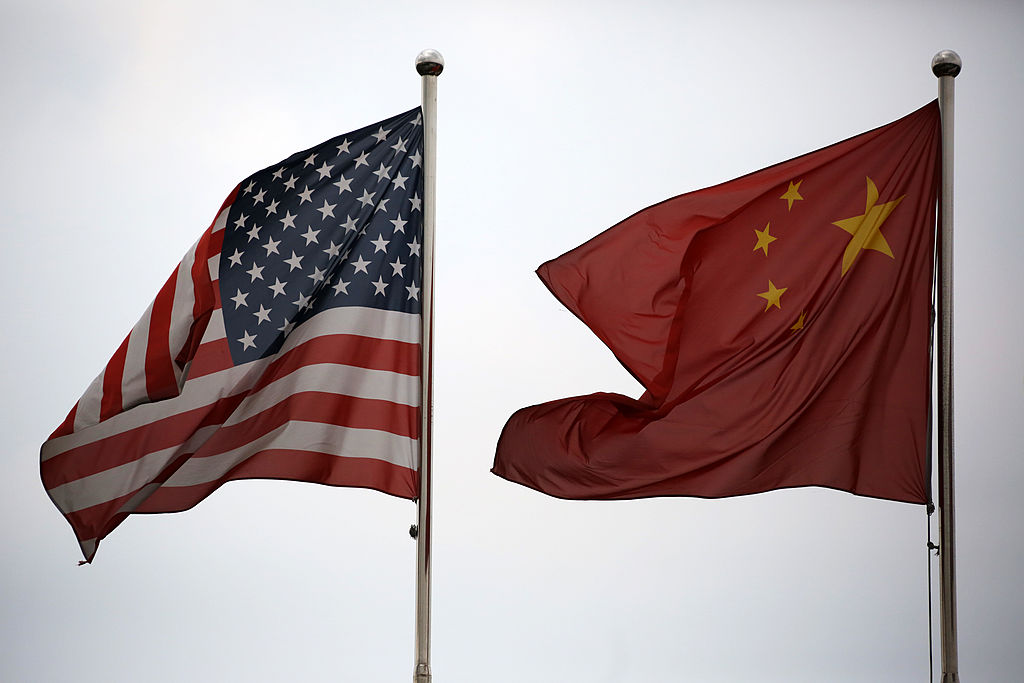
The view of Anchorage. /Getty
The view of Anchorage. /Getty
Editor's note: Hannan Hussain is a foreign affairs commentator and author. He is a Fulbright recipient at the University of Maryland in the U.S., and a former assistant researcher at Islamabad Policy Research Institute. The article reflects the author's opinions and not necessarily the views of CGTN.
"There is no way to strangle China." That is a sentence that two of China's top representatives, Wang Yi and Yang Jiechi, never thought would be necessary in Alaska. But their U.S. counterparts left no choice.
On March 18, top diplomats from both sides marked a recourse to high-level engagement in Anchorage, in hopes of putting a floor beneath bilateral freefall. The idea of having less contentious and highly agreeable discussions was never the wishful expectation, yet the exercise of shrewd diplomacy tools kept it on the cards.
And yet, the United States' presumed "position of strength" took an early blow once a senior official let loose all basics of honorable statecraft: accusing the Chinese delegation of intending to exercise "grandstanding ... public theatrics and dramatics over substance."
These remarks and their telling lack of opposition from U.S. Secretary of State Antony Blinken and National Security Adviser Jake Sullivan speak to the contours of the first round of high-level dialogue, where prospects for Sino-U.S. engagement were all too frequently undercut by an implicit U.S. preference for confrontation.
Such a rocky start is not immune to transformation though. But it can only change if the partisan conduct is met with adequate leadership to manage differences, an ability Beijing came to expect.
One sign of an achievable Sino-U.S. bilateral balance went unnoticed. Washington expressed its approval of fast-paced competition between both sides as long as it deterred chances of zero-sum conflicts. "We do not seek conflict, but we welcome stiff competition, and we will always stand up for our principles, for our people, and for our friends," remarked Sullivan.
But in order for the U.S. to roundly deliver on such a distinction in the next round, it is critical that the Biden administration sets right what it construes is an example of China's alleged humanitarian and economic coercion.
Nowhere is this more evident than in the vitriol of Blinken, who ruled China's state measures in Xinjiang, Hong Kong and Taiwan as evidence of "actions [that] threaten the rule-based order," and global stability at-large.
Going without admission is the well-documented decay of global peace parameters within U.S. borders: a damning surge in racial violence, dwindling public confidence, and democratic exceptionalism. Beijing, a practiced noninterference hand, only brought these reality checks to memory once unwarranted accusations on Chinese sovereignty gained center stage.
The greatest casualty in such a dialogue pivot is a loss of crucial accommodation space on issues such as maritime de-escalation, competitive Sino-U.S. trade balancing, and targeted sanctions.

U.S. and Chinese national flags fly outside a company in Shanghai, China, October 22, 2013. /Getty
U.S. and Chinese national flags fly outside a company in Shanghai, China, October 22, 2013. /Getty
Beijing's calculated references to American governance were also necessary for communicating a fundamental reality: that China's sovereign affairs are not a selling point for U.S. democratic leadership overseas. This separatism is key to mustering a higher degree of mutual recognition, shared scrutiny and coexistence when both delegations explore pathways for cooperation on climate change, and methods for pandemic control in private today.
Given the transnational make-up of both issues, the strategy and tone of bilateral engagement from the U.S. must wholly reflect the universal values that both parties are determined to uphold.
Their manner of communication notwithstanding, hot-button issues such as market malpractices, military aggression and trade perceptions were weighty concerns for both China and the U.S. But the groundwork for a successful breakthrough on any would involve a test of how well each party frames their threat perceptions to the shared determinants of "global stability."
Chinese diplomat Yang Jiechi offered a starting point to fast-tracking such correlations: let international public opinion stay international.
"We believe that it is important for the United States to change its own image, and to stop advancing its own democracy in the rest of the world," said Yang in reaction to repeated anti-China diatribes. Only a departure from parallel (and often contradictory) approaches to great-power negotiations can facilitate that U.S. image building, where measures such as the sanctioning of two dozen Chinese officials over presumed democracy crackdowns is deemed as an impediment, not enabler, of rules-based endeavor.
Taken together, rare windows of bilateral engagement between China and the U.S. should make clear the intent to at least identify areas of mutual cooperation, even when tough competition and periodic confrontation may penetrate from the sidelines.
The opening in Anchorage was a step in the other direction. It will serve diplomatic repute better if public point-scoring is saved for another day.
(If you want to contribute and have specific expertise, please contact us at opinions@cgtn.com.)

